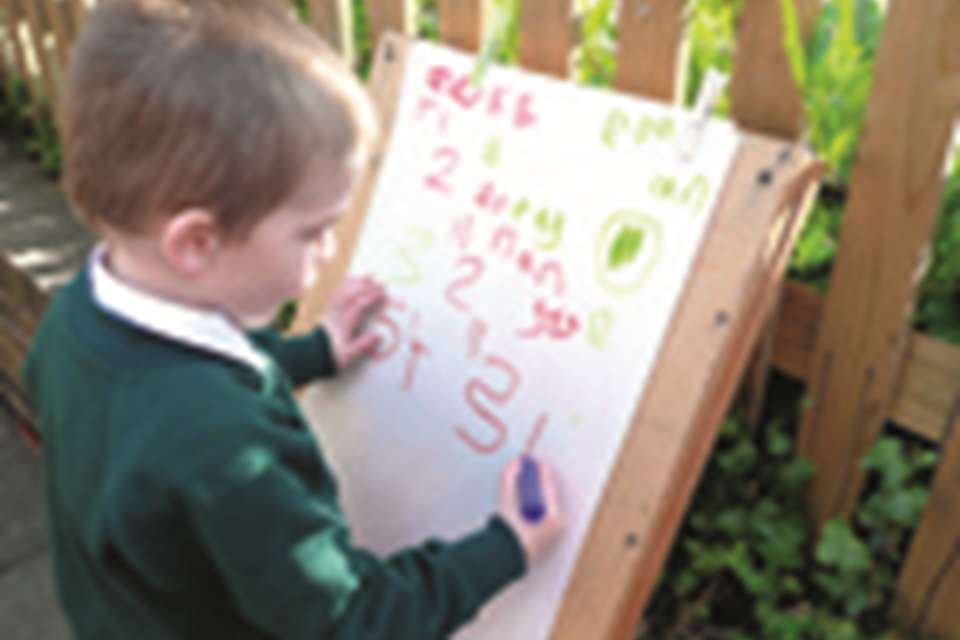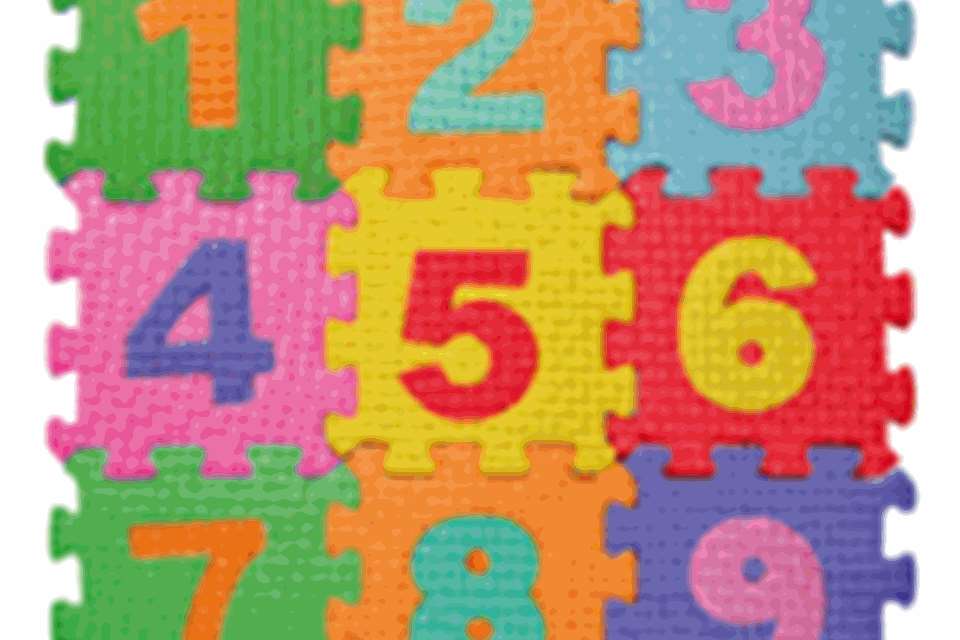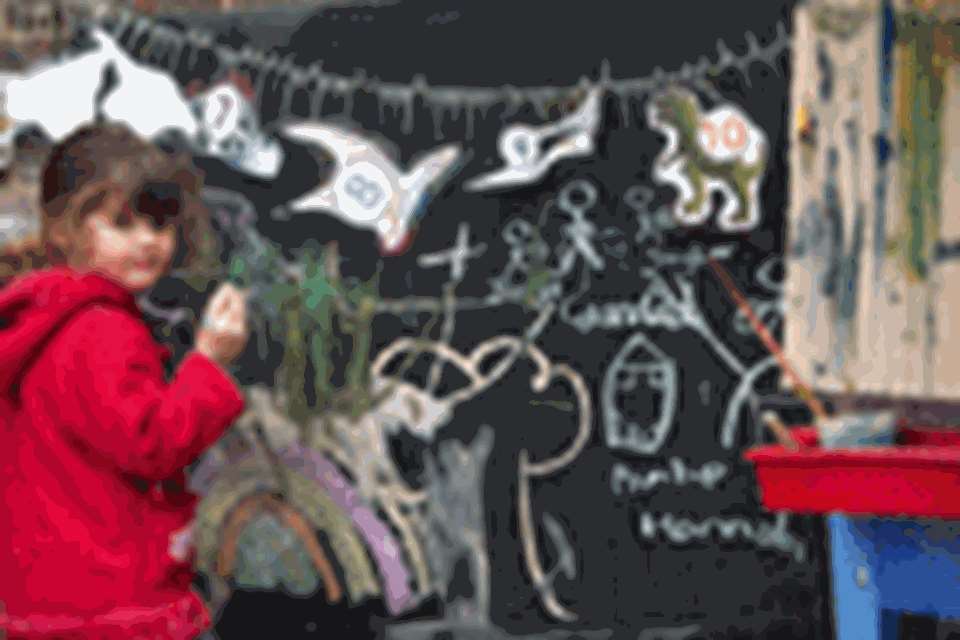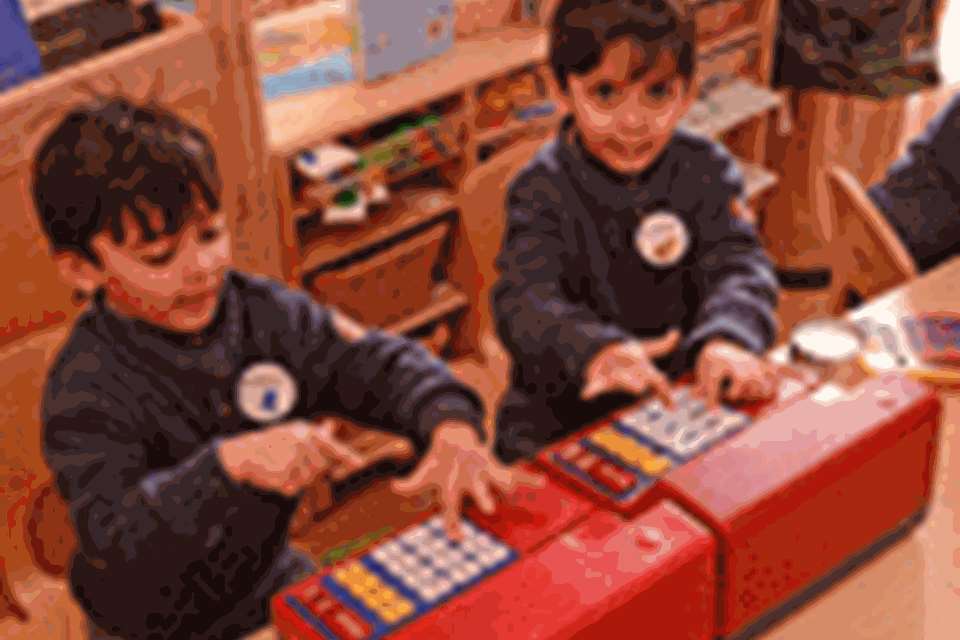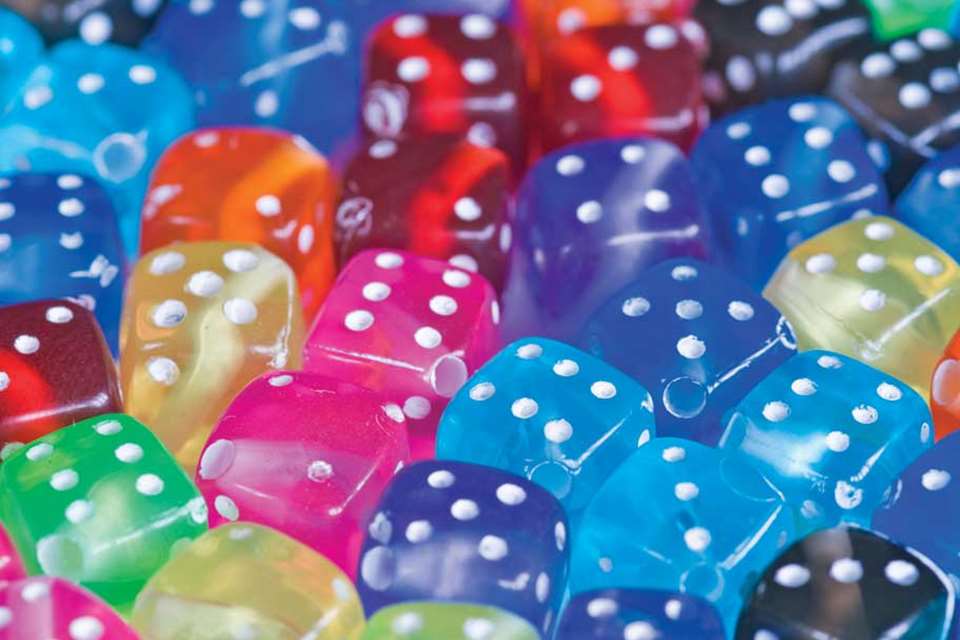Learning & Development: Estimating: Part 2 - Can you guess?
Jo Van Herwegen
Monday, March 10, 2014
Structured games designed to encourage children to estimate numbers can improve their mathematical abilities later on in life. Dr Jo Van Herwegen explains how the approach works.
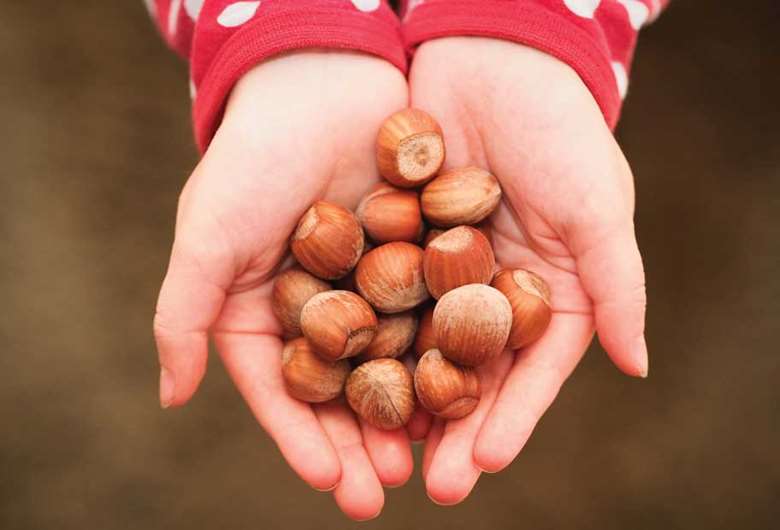
A child's ability to estimate has a greater bearing on their mathematical skills later in life than their ability to count. It is important then that early years practitioners understand the different ways we estimate and promote these abilities in nursery-aged children.
As we saw in Part 1, we estimate in two ways:
- subitising - this is the ability to estimate quickly the number of 'items' at a glance, without counting. For example, adults are able to know immediately the number of dots on a face of a dice, without counting the actual dots. This system is fast, precise, and works with small numbers. It also relies on our memory.
- by using our approximate number sense (ANS) - with this system, we can't calculate an exact number but it does help us to identify which number is larger or an approximate number. This method relies on number ratios (that is, how far apart numbers are from each other on a number line) and is, therefore, imprecise. The bigger the gap between two amounts, the easier it is to spot the larger, so we can identify eight dots versus 16 but struggle when faced with eight dots versus ten.
Research has now found that these ANS abilities in pre-school children predict their mathematical abilities later on in life. Thus, the better our ANS ability, the better we are at mathematics, regardless of overall intelligence (see more information column).
DEVELOPING ANS IN YOUNG CHILDREN
I recently developed a pre-school number learning scheme called PLUS, which aims to improve pre-schoolers' ANS abilities and to give them confidence in maths by showing them that it's okay to guess numbers.
PLUS includes two types of games, each matching a function of the ANS system: four guessing games and four games in which children are asked to match or differentiate between different ratios.
The ideas were adapted from familiar pre-schooler games and the stimuli relate to a variety of senses, including touch, visual and auditory.
In all the games, children are prevented from counting by not giving them the time to count (that is, by asking the children to compete with each other and completing the game very quickly) or by showing the stimuli for only a very short time.
All the games start with large ratios (that is, 1:2) or clear differences between the number of items presented and the ratios became smaller as the weeks of training progress. For all games, feedback is provided by an adult - for example, 'That's right, there are a lot of dots here and a lot of dots there. So those two go together.' (See box.)
Then, with colleagues, I carried out a research project in local nurseries within the Royal Borough of Kingston and tried the games out with 60 children, first with researchers playing with the children, and then trained nursery staff how to use them.
Children from two-and-a-half to five played the PLUS games for ten minutes each day for five consecutive weeks. Children were assessed on three different types of tests (tests assessing ANS abilities, counting abilities, and memory abilities) before the children started playing the games and completed the same tests again after five weeks to measure any improvements.
The study also included a control group of children who were involved in interactive picture book reading activities for five weeks. The results showed that children who played the PLUS games did better in all the tests compared to the control group: they showed better ANS abilities, better counting abilities, and performed better on working memory tasks that assess how well children can manipulate information in their minds. In addition, the PLUS group showed better overall mathematical abilities five weeks later at follow-up.
In the follow-up study, when we trained nursery staff to provide the games to preschoolers, again the children were assessed on their ANS, counting, and memory abilities both before and after five weeks of playing the games. Again, the results showed that children in the ANS group improved more than those in a control group.
Thus, preschoolers' ANS abilities can be improved within five weeks by playing PLUS games that target both guessing and matching of sets of numbers. In addition, even though children were prevented from counting during the games, the improved ANS abilities had a positive impact on children's counting and formal mathematical abilities, as well as their working memory abilities.
The training programme PLUS can be implemented easily in early years settings or at home as the programme only takes ten minutes each day and follows just two simple principles:
- allowing children to guess will provide children with confidence in maths, and
- increasing the ANS system by introducing smaller ratios over time in matching games will improve mathematical abilities.
CASE STUDY
One of the nursery groups that took part in the study was Dicky Birds. Derek Hayes, operations manager at the nursery, explains why taking part in the research was challenging but beneficial.
'I was particularly excited that the study was related to maths skills as I feel that busy practitioners, myself included, often have a less than creative approach to teaching maths skills - relying too much on counting and rote learning,' he said.
'Parents also tend to focus very specifically on these as evidence of "education" and I wanted new ideas or further evidence that a softer, play-based approach had longer-term benefits. It can be hard defending a play-based approach to learning maths when parents, private schools, and the Government's emerging strategies place emphasis on more structure and formal learning.
'In addition, the children thoroughly enjoyed taking part in the assessments and games - they had a lot of novelty value and were good fun and I think the small groups and adult attention also helped.
'Parents responded positively too. They were keen to see the results and gain tips as to what they can be doing at home, so it's boosted our home learning programme.'
However, one of the challenges of taking part in research is the organisation it requires, especially ensuring consistency of children's attendance and planning around organised trips and sports days.
But Mr Hayes explains that it was all worth it and that the research also benefited the staff. 'It's really helped remind everyone that maths can be fun and is all around us. You can forget how easy it is to incorporate mathematical language into everyday conversations.
'Also instead of pressurising children to recognise numbers, recite them in order and get the "right" answer, we're now very happy to let children guess. So, for example, on a walk we might say, "Wow, look at that tree, I wonder how many leaves there are?" and be happy if the children suggest a "big" number - rather than feeling we can't ask because it's impossible to count exactly. Of course, if they guessed just four leaves, we'd then say, "Mmm, I think there might be a lot more than four" and encourage them to guess again.'
Dicky Birds continues to play the games regularly and often does so on request from the children. In the near future, we hope to replicate the results with a larger group of children across different cultures - for example, the research is being continued in Italy - and with children who have specific mathematical difficulties.
MORE INFORMATION
- 'Core systems of number' by L Feigenson, S Dehaene and ES Spelke (2004) in Trends in Cognitive Science, 8(7), 307-314.
- 'Impaired acuity of the approximate number system underlies mathematical learning disability (dyscalculia)' by MMM Mazzocco, L Feigenson and J Halberda (2011a) in Child Development, 82 (4), 1224-1237
- 'Pre-schoolers' precision of the approximate number system predicts later school mathematics performance' by MMM Mazzocco, L Feigenson, and J Halberda (2011b). in PLOS One, 6(9): e23749.
- To find out more about PLUS or take part in future research go to www.jovanherwegen.co.uk/index.php/blog/ PLUS-preschool-number-learning-scheme
HOW TO PLAY
The guessing game
In one of the guessing games children are asked questions about how many items they think are presented. For example, you show children a box with sweets and ask, 'How many sweets are in this box?' Regardless of the answer, give the child praise or a sticker for their guess. Next, you can give them constructive feedback - for example, 'I think there are ...'
This game promotes guessing and allows children to learn new number words that are introduced by the adult via the feedback provided. Here, it is important to:
- show the child what they need to guess, and
- prevent the child from counting the items.
The answer does not have to be correct but just 'good enough'. You can play this game when walking in a park or even in a supermarket queue.
A matching game
 Create some cards with one to 16 coloured objects of different sizes on them. Next, put one card with a large number (for example, 12 objects) on one side of the child and one with a small number (for example, six objects) on the other side.
Create some cards with one to 16 coloured objects of different sizes on them. Next, put one card with a large number (for example, 12 objects) on one side of the child and one with a small number (for example, six objects) on the other side.
Give the child a third card with, for example, 14 or seven objects and ask the child 'match' the card in their hand to one on the table, putting a large number with a large number or a small number of objects with another small amount.
Start this game with numbers that clearly belong to one pile and then make it harder over time by using cards with numbers that can go either way without counting the objects (for example, eight or ten objects).
Dr Jo Van Herwegen is a senior lecturer in psychology at the School of Psychology, Criminology and Sociology at Kingston University in London




